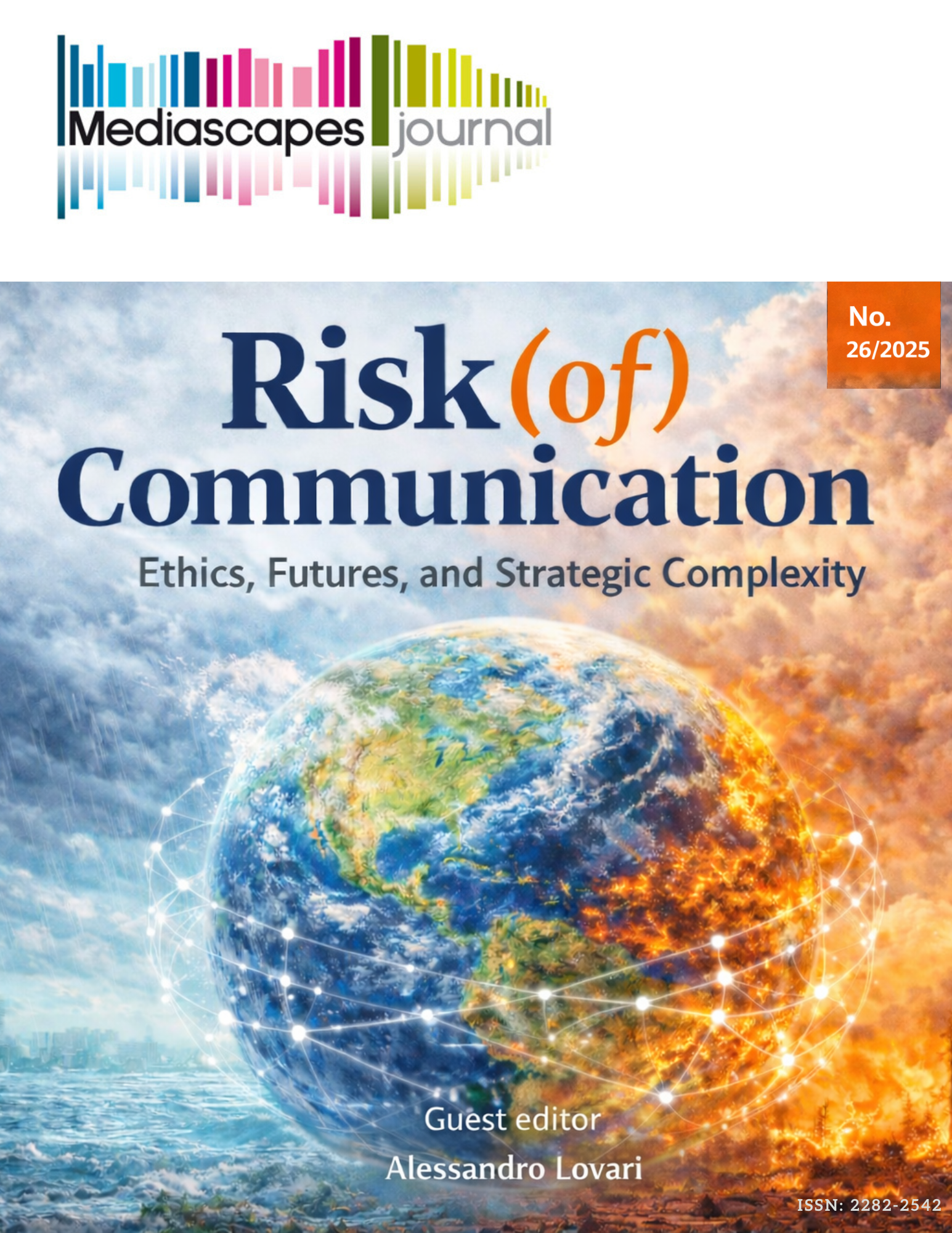About the Journal
Mediascapes Journal is an open access online journal published twice a year by Sapienza University committed to the advancement of media studies.
Born in 2013, Mediascapes Journal is a forward-thinking forum that explores communication and mass communication phenomena within a wide range of disciplinary perspectives. It emphasizes the publication of original investigations that increase theoretical and empirical advancements in fields of media studies.
Mediascapes Journal is structured into three sections: a monographic section, an analysis section, and Mediascenari.
The monographic section is devoted to thematic calls for papers and gathers contributions that address a shared topic from different theoretical and methodological perspectives.
The miscellany section "Research pathways" hosts submissions not linked to a specific thematic call, focusing on the analysis of phenomena, practices, or objects within contemporary media. All articles published in these two sections undergo a double-blind peer review process.
Mediascenari is dedicated to critical reflections, explorations of emerging fields, and more experimental contributions, aimed at observing ongoing transformations in the media landscape.
Mediascapes Journal accepts contributions in Italian and English.
EDITOR: Giovanni Boccia Artieri
JOURNAL MANAGER: Manolo Farci
Casa Editrice Sapienza
ISSN: 2282-2542
E-mail: mediascapesjournal@gmail.com
Current Issue

This issue of Mediascapes Journal, Risk (of) Communication: Ethics, Futures, and Strategic Complexity, edited by Alessandro Lovari, explores a dual lens: risk communication as a response to crises and disasters, and the risk of communication when organizational messaging is poorly planned or ethically fraught. Across climate and environmental emergencies, digital platforms, and generative AI, the papers show how communication can anticipate, create, amplify, or resolve crises while raising urgent ethical questions about responsibility, power, and justice. Bringing together 13 articles by 27 scholars from 16 universities across Europe, Asia, and the United States, the issue advances new debates on misinformation, AI-enabled infrastructures, geopolitical tensions, and normative ethics in strategic communication.

